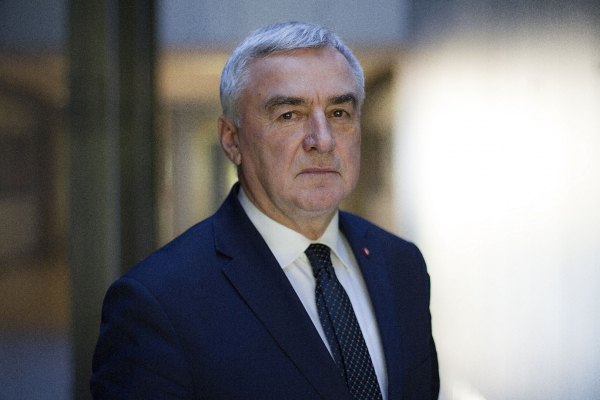Świętokrzyskie region innovates with the bioeconomy

Between 1 October 2017 and 30 September 2020, the Świętokrzyskie region in Poland has been heavily involved with respect to a unique project regarding bioeconomic policies as part of the European Union's strategy for the Baltic Sea region (EUSBR). This innovative project is called "RDI2CluB," and its fundamental goal is to help rural areas in the Baltic Sea region reach their full potential through a more efficient and circular bioeconomy.
By using renewable resources and circular economic models, RDI2CluB was launched with the goal of ensuring effective and sustainable economic growth, as well as climate change mitigation. The RD12CluB was co-funded by the European Regional Development Fund in cooperation with the INTERREG Baltic Sea Region Programme for 2014-2020 and was led by the JAMK university of Applied Sciences in Central Finland, with which the Świętokrzyskie region has enjoyed close cooperation since 2004.
The project included support from twelve partners in Finland, Poland, Norway, Estonia and Latvia, as well as six associated organisations. Each country was represented by a consortium that included experts in administration, science, energy and business. This diversified approach was echoed by the project itself emphasising the role of regions and local authorities in growing a successful bioeconomy. This emphasis on the local approach was also underlined in the EU's own bioeconomic strategy. RDI2CluB took it a step further, by constructing regional bioeconomic profiles of partner regions and action plans tailored to the specific characteristics of individual regions.
Importantly, RDI2CluB also oversaw the creation of a one-of-a-kind, digital platform called Biobord.eu. This online hub serves as both a virtual work environment and a setting where young professionals, experts and enthusiasts can discuss, exchange and cooperate on ideas relating to sustainability and the circular economy. Furthermore, partner regions (such as Świętokrzyskie) have been able to launch pilot programmes as part of RDI2CluB project. One such example relates to improving air quality throughout Poland, which has been a public health concern there in recent years. Furthermore, the RDI2CluB helped encourage communities, such as Busko Zdrój and Solec Zdrój in the Świętokrzyskie region, to finance the replacement of coal furnaces throughout the city. Due to its close associations with the RDI2CluB, and its commitment to innovating the bioeconomy, the Świętokrzyskie region has also been running an educational campaign called "Don't turn the world grey", to raise awareness regarding air pollution. These examples illustrate how the RDI2CluB project, allowed for closer and more integrated cooperation between local communities and experts on how to best advance the goals of a more sustainable and cleaner bioeconomy, while also encouraging local authorities and individuals to take action themselves.
However, perhaps one of the most successful aspects of the RDI2CluB project, was the degree to which young people and young professionals became inspired to help innovate and propose initiatives in order to assist in the growth of the bioeconomy. Specifically, the Youth Parliament of Świętokrzyskie became especially interested in the project. Sustainability and mitigating climate change have been an especially salient issue for many young people in Świętokrzyskie, who are looking to ensure a brighter future, for not only the Baltic Sea region, but for society on the whole.
ECR Member and the President of the Świętokrzyskie region, Andrzej Bętkowski expressed pride in not only his region's cooperation with the project, but the large degree of input many young people had in it. While the project may have ended, it was very successful in spreading awareness regarding the bioeconomy. By popularising terms such as the "circular economy" and raising public consciousness regarding carbon emissions, air quality and sustainability, the project was fruitful.

